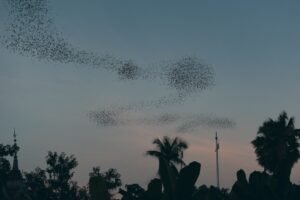Comprehensive Guide of Ant Farm Keeping
Overview
Ant farm keeping is a fascinating and educational hobby that involves creating and maintaining a habitat for ants, allowing enthusiasts to observe their behavior, social structure, and interactions. This hobby can be both entertaining and informative, as it provides insights into the complex lives of these industrious insects. Ant farms can be constructed using various materials, such as acrylic, glass, or soil, and can range from simple setups to elaborate, multi-chambered environments. By keeping ants, hobbyists can learn about different species, their roles within the colony, and the ecological importance of ants in the environment. This hobby also promotes responsibility and patience, as maintaining an ant farm requires regular care and observation.
History
The practice of keeping ants as a hobby dates back to ancient civilizations, where people would observe these insects in their natural habitats. However, the modern concept of ant farming began in the 20th century, particularly in the 1930s when ant farms became popularized as educational tools for children. The first commercially available ant farms were made of glass and featured a sand substrate, allowing for clear visibility of the ants’ tunnels and activities. Over the years, advancements in materials and design have led to the creation of more sophisticated ant farms, including those with built-in observation chambers and climate control features. The hobby has continued to grow, with a wide variety of ant species now available for enthusiasts to keep, each offering unique challenges and experiences.
Popularity and Demographics
Ant farm keeping has gained popularity among a diverse range of individuals, from children to adults, due to its educational value and the unique experience it offers. Many parents introduce their children to this hobby as a way to teach them about biology, ecology, and responsibility. According to various surveys, the interest in ant keeping has seen a resurgence in recent years, particularly among younger generations who are drawn to the hands-on learning experience it provides. Online communities and forums dedicated to ant keeping have also emerged, allowing enthusiasts to share tips, experiences, and advice. The accessibility of ant farming kits and resources has made it easier for newcomers to start their own colonies, contributing to the hobby’s growth and popularity.
Sponsored Hobbyists and Vendors
Become a Sponsor!
Affiliate Disclaimer: Throughout some sections below, Hobby Spotlight may suggest some tools, equipment or material using affiliate links. By purchasing any of those items, Hobby Spotlight may earn a small commission. This helps fund our website, content and services without directly charging our users.
Getting Started
Ant Farming Supplies:
Beginner
- Ant Farm Kit: A starter kit that includes an ant farm habitat and basic supplies.
- Ant Food: Specialized food designed for ants to ensure their health and growth.
- Magnifying Glass: A tool to observe ants closely and study their behavior.
- Watering Syringe: A syringe for providing water to the ants without flooding the habitat.
- Ant Identification Guide: A book or guide to help identify different species of ants.
Intermediate
- Advanced Ant Farm: A more complex ant farm with tunnels and chambers for advanced observation.
- Ant Nesting Material: Materials to create a more natural nesting environment for ants.
- Thermometer and Hygrometer: Tools to monitor temperature and humidity levels in the ant habitat.
- Ant Breeding Kit: A kit designed for breeding and raising ant colonies.
- Ant Observation Journal: A journal for recording observations and experiments with ants.
Basic Requirements and Initial Setup:
- Adequate Ant Farm Setup: Choose a suitable ant farm kit that includes a transparent enclosure, substrate for tunneling, and a secure lid to prevent escapes. Ensure it is large enough to accommodate the species you plan to keep.
- Ant Species Selection: Research and select a suitable ant species for your ant farm. Popular choices include harvester ants, carpenter ants, and fire ants. Each species has different care requirements and behaviors.
- Environmental Conditions: Maintain appropriate temperature and humidity levels for your ants. Most species thrive in temperatures between 70°F to 80°F (21°C to 27°C) and require a humidity level of around 30% to 50%.
Fundamental Skills to Learn:
- Observation Skills: Learn to observe ant behavior and colony dynamics, which is crucial for understanding their needs and health.
- Feeding Techniques: Understand the dietary requirements of your chosen ant species, including the types of food and feeding schedules.
- Colony Maintenance: Develop skills in maintaining the ant farm environment, including cleaning, substrate replacement, and monitoring for pests.
- Breeding Knowledge: If interested in breeding, learn about the reproductive cycle of ants and how to care for the queen and her brood.
- Problem-Solving: Be prepared to troubleshoot common issues such as escapes, mold growth, or health problems within the colony.
Sub-Hobby/Common Activities:
- Ant Species Identification: Learn to identify different ant species and their unique behaviors and habitats.
- Colony Observation: Spend time observing the daily activities of the ants, including foraging, nest building, and social interactions.
- Ant Feeding and Nutrition: Experiment with different food sources, such as sugar water, fruits, and protein, to see what your ants prefer.
- Ant Photography: Capture the fascinating behaviors and structures of your ant colony through photography, enhancing your understanding and appreciation of these insects.
- Ant Farm Design: Get creative by designing and building custom ant farms using various materials and layouts to enhance the living environment for your ants.
Terminology:
- Colony: A group of ants living together, typically consisting of a queen, workers, and brood (eggs, larvae, and pupae).
- Queen Ant: The reproductive female in the colony responsible for laying eggs and maintaining the colony’s population.
- Worker Ant: Non-reproductive females that perform various tasks such as foraging, caring for the queen’s offspring, and maintaining the nest.
- Brood: The collective term for the eggs, larvae, and pupae in an ant colony.
- Foraging: The process by which worker ants search for food and resources outside the nest.
- Ant Farm Substrate: The material used in the ant farm to allow for tunneling and nesting, often consisting of sand, soil, or gel.
- Ant Communication: The methods ants use to communicate, primarily through pheromones, which are chemical signals that convey information.
- Ant Nest: The structure or area where ants live and raise their brood, which can be underground or above ground.
- Ant Lifespan: The duration of life for ants, which varies by species; queens can live for several years, while workers typically live for a few months.
- Myrmecology: The scientific study of ants, their behavior, ecology, and evolution.
Advanced Topics and Specializations
Advanced Ant Keeping Tools:
- Formicarium: A specialized ant habitat designed for optimal viewing and colony growth, often made of glass or acrylic.
- Ant Feeding Station: A dedicated feeding area that prevents spillage and allows for easy monitoring of food intake.
- Ant Nesting Material: High-quality substrates like sand, soil, or gypsum that provide a natural environment for ants to build their nests.
- Ant Observation Kit: A kit that includes tools for observing ant behavior, such as magnifying glasses and specimen jars.
- Temperature and Humidity Monitor: An electronic device that helps maintain optimal conditions for ant colonies by monitoring environmental factors.
Advanced Projects and Achievements:
- Colony Expansion: Successfully establishing and maintaining a thriving ant colony, including species like Formica or Camponotus, showcasing the ability to create a suitable habitat and environment.
- Ant Farm Design: Creating custom ant farms with unique layouts and materials, such as acrylic or glass, that enhance visibility and mimic natural habitats.
- Behavioral Studies: Conducting experiments to observe and document ant behavior, such as foraging patterns, communication methods, and colony dynamics.
Advanced Techniques and Methods:
- Substrate Layering: Utilizing different substrate materials to create a naturalistic environment that supports ant health and behavior, including sand, soil, and organic matter.
- Temperature and Humidity Control: Implementing systems to monitor and adjust the microclimate within the ant farm, ensuring optimal conditions for the specific ant species.
- Feeding Techniques: Developing a balanced diet for ants that includes protein sources, carbohydrates, and hydration methods, such as using gel feeders or sugar water.
Specializations and Niche Areas:
- Species-Specific Care: Focusing on the needs of particular ant species, such as leafcutter ants or fire ants, which require specialized habitats and diets.
- Ant Breeding: Engaging in the breeding of specific ant species to promote genetic diversity and study life cycles.
- Educational Ant Farms: Creating ant farms designed for educational purposes, aimed at teaching children and adults about ecology, biology, and the importance of ants in the ecosystem.
Future Trends and Innovations:
- Increased interest in sustainable and ethical ant keeping practices, focusing on conservation and responsible sourcing of ant species.
- Development of smart ant farms with integrated sensors to monitor environmental conditions and provide real-time data to keepers.
- Growing popularity of community-driven platforms for sharing ant keeping experiences, tips, and research findings.
- Integration of augmented reality (AR) to enhance the viewing experience of ant farms, allowing users to visualize ant behavior in real-time.
- Emergence of DIY ant farm kits that include all necessary materials and instructions for beginners to start their ant-keeping journey.
Technology Integration:
- Smart Monitoring Systems: Devices that track temperature, humidity, and activity levels within the ant farm, providing alerts for any necessary adjustments.
- Online Communities and Forums: Platforms where ant keepers can share experiences, ask questions, and collaborate on research and projects.
- Mobile Apps for Ant Identification: Applications that help users identify different ant species and provide care tips based on their specific needs.
- Virtual Reality Experiences: Immersive experiences that allow users to explore ant colonies and their behaviors in a virtual environment.
- 3D Printing for Ant Habitats: Utilizing 3D printing technology to create custom ant farm components and structures tailored to specific species.
Further Learning and Resources
Books:
- Ants of North America: A Guide to the Ants of the United States by Brian L. Fisher: A comprehensive resource for advanced ant keepers, detailing identification, ecology, and behavior of North American ant species.
- The Ants by Bert Hölldobler and Edward O. Wilson: A seminal work in myrmecology, this book offers in-depth research and insights into ant biology, behavior, and evolution, suitable for serious enthusiasts.
- Ant Ecology by Walter D. Tschinkel: An advanced exploration of ant ecology, discussing their role in ecosystems, social structures, and environmental interactions, perfect for those looking to deepen their knowledge.
Websites:
- AntsCanada, https://www.antscanada.com – A comprehensive resource for ant enthusiasts, offering care guides, videos, and a community forum.
- The Ant Farm, https://www.theantfarm.com – Specializes in ant farm kits and supplies, along with educational resources about different ant species.
- AntWiki, https://www.antwiki.org’ – An extensive online encyclopedia dedicated to ants, featuring species information, research articles, and identification guides.
- My Ants, https://www.myants.com – A platform for purchasing ant colonies and supplies, along with care tips and community discussions.
- Ant Farm World, https://www.antfarmworld.com – Offers a variety of ant farm kits, educational materials, and a blog with tips for successful ant keeping.
Courses:
- Ant Keeping 101, https://www.udemy.com/course/ant-keeping-101 – A beginner-friendly course covering the basics of ant care, habitat setup, and species selection.
- Advanced Ant Keeping Techniques, https://www.coursera.org/learn/advanced-ant-keeping – An advanced course focusing on breeding, colony management, and specialized habitats.
- Ant Behavior and Ecology, https://www.edx.org/course/ant-behavior-and-ecology – Explore the fascinating world of ant behavior and their ecological roles in this comprehensive course.
- Building Your First Ant Farm, https://www.skillshare.com/classes/Building-Your-First-Ant-Farm/123456 – A practical course that guides you through the process of creating and maintaining your first ant farm.
- Ant Species Identification, https://www.masterclass.com/ant-species-identification – Learn how to identify various ant species and understand their unique characteristics in this detailed course.
Content Creators and Community
Content Creators:
- AntsCanada (YouTube): A leading channel dedicated to ant keeping, featuring informative videos on ant species, habitat setups, and care tips, along with engaging storytelling about the ant colonies.
- The Ants Nest (YouTube): Focuses on ant keeping tutorials, colony care, and species identification, providing viewers with practical advice and insights into the fascinating world of ants.
- Ant Keeping (Instagram): A popular account showcasing stunning ant photography, habitat designs, and community highlights, perfect for enthusiasts looking for inspiration and tips.
Online Forums and Social Media Groups:
- Reddit – /r/AntKeeping: A vibrant community for sharing experiences, asking questions, and discussing all aspects of ant keeping.
- Facebook Ant Keeping Groups: Various groups where hobbyists share tips, photos, and advice on ant care and colony management.
- Ant Keeping Discord Servers: Interactive platforms for real-time discussions, advice, and community support among ant enthusiasts.
- Instagram Hashtags (#antkeeping, #ants): Follow trending posts and connect with other ant keepers through shared visuals and experiences.
- Pinterest Boards: Explore a variety of ant habitat designs, care tips, and educational resources curated by passionate ant keepers.
Local Clubs and Organizations:
- Local Entomology Clubs: Many regions have clubs focused on insects, including ant keeping, where enthusiasts can share knowledge and experiences.
- University Entomology Departments: Often host events and workshops related to insect care and research, including ant keeping.
- Nature Centers: Some nature centers offer programs and workshops on local ant species and their habitats.
- Meetup Groups: Platforms like Meetup.com may host local ant keeping clubs and gatherings for enthusiasts to connect and share tips.
Events, Meetups, and Conventions:
- Ant Keeping Conventions: Events dedicated to ant enthusiasts featuring talks, workshops, and networking opportunities.
- Local Insect Expos: Many expos include sections on ant keeping, showcasing vendors, educational talks, and live demonstrations.
- Workshops at Nature Festivals: Learn about ant habitats, care, and species identification through hands-on workshops.
- Ant Competitions: Some events host competitions for the best ant setups and colony health, encouraging skill development.
- Online Webinars: Various organizations offer webinars on ant keeping topics, allowing enthusiasts to learn from experts remotely.
Associated Hobbies
- Insect Observation: Many ant farm enthusiasts enjoy observing the behavior and interactions of different ant species, which can lead to a deeper understanding of their social structures and roles within the colony.
- Gardening: Some ant keepers also take up gardening, as certain plants can attract beneficial insects and create a more natural environment for their ants, enhancing the overall aesthetic of the ant farm.
- Entomology: The study of insects, or entomology, often becomes a passion for ant farm keepers. They may delve into research about various ant species, their habitats, and their ecological significance.
- DIY Projects: Building custom ant farms can be a rewarding hobby. Enthusiasts often engage in DIY projects to create unique habitats using materials like glass, acrylic, or even natural substrates.
- Photography: Capturing the intricate details of ant behavior and their environments can lead to a new hobby in photography. Many ant keepers enjoy documenting their colonies through photos and videos.
- Education and Outreach: Some ant farm keepers take on the role of educators, sharing their knowledge about ants with others through workshops, social media, or community events, fostering a greater appreciation for these insects.
- Collecting Ant Species: Enthusiasts may also engage in the collection of different ant species, learning about their specific care requirements and behaviors, which can enhance their ant-keeping experience.
- Environmental Conservation: Many ant keepers become advocates for environmental conservation, understanding the role ants play in ecosystems and participating in efforts to protect their natural habitats.
Cost and Budgeting
Initial Investment and Ongoing Costs:
- Initial Investment: Starting an ant farm can be relatively inexpensive. A basic ant farm kit, which includes a habitat, ants, and necessary supplies, typically costs between $20 and $50. More advanced setups, such as those with specialized habitats or larger colonies, can range from $100 to $300.
- Ongoing Costs: The ongoing costs for ant farm keeping are minimal. You may need to purchase additional food, which can include sugar water, honey, or specialized ant food, costing around $5 to $15 per month. If you choose to expand your colony or upgrade your habitat, there may be additional costs associated with those purchases.
Budget-Friendly Options:
- DIY Ant Farms: You can create your own ant farm using materials like a glass container, sand, and soil. This can significantly reduce initial costs while allowing for customization.
- Starter Kits: Look for starter kits that include everything you need to get started at a lower price point. These kits often provide good value for beginners.
- Local Ant Collecting: Instead of purchasing ants, consider collecting them from your local environment. Just ensure you are following local regulations regarding ant collection.
Where to Buy:
- Pet Stores: Many pet stores carry ant farm kits and supplies, providing a convenient option for beginners.
- Online Retailers: Websites like Amazon, AntsCanada, and AntsAlive offer a wide variety of ant farms, ants, and supplies, often with customer reviews to help guide your purchase.
- Specialty Stores: Some stores specialize in insect keeping and may offer a broader selection of ant species and habitats, along with expert advice.
Money Making
How to Turn the Hobby into a Profession or Side Hustle:
- Ant Farm Business: Start your own ant farm business by creating and selling custom ant farms. You can design various types of habitats, from simple starter kits to elaborate setups, catering to both beginners and experienced ant keepers. Market your products online through an e-commerce website or platforms like Etsy, and consider offering educational materials to accompany your kits.
- Ant Keeping Workshops: Share your passion for ant keeping by hosting workshops or classes. You can teach others about ant biology, care, and maintenance, as well as how to set up their own ant farms. These workshops can be conducted in person or online, allowing you to reach a wider audience and generate income through registration fees.
- Ant Care Consulting: If you have extensive knowledge about different ant species and their care requirements, consider offering consulting services. You can help individuals or businesses set up and maintain their ant farms, providing guidance on species selection, habitat design, and feeding practices. This can be a lucrative side hustle, especially for those looking to create educational displays or exhibits.
- Ant-Themed Merchandise: Create and sell ant-themed merchandise, such as clothing, accessories, or home decor. This could include t-shirts with ant designs, educational posters, or even ant-themed toys. By tapping into the niche market of ant enthusiasts, you can build a brand that resonates with fellow hobbyists.
- Ant Keeping Blog or YouTube Channel: Start a blog or YouTube channel dedicated to ant keeping. Share your experiences, tips, and tricks for maintaining healthy ant colonies. You can monetize your content through advertising, sponsorships, and affiliate marketing, turning your passion into a potential full-time income source.
Benefits and Enjoyment
Physical, Mental, and Social Benefits:
- Physical Activity: Keeping an ant farm involves regular maintenance, such as cleaning the habitat and monitoring the ants’ activities. This can promote light physical activity and encourage movement, especially for those who enjoy observing and interacting with their setup.
- Mental Stimulation: Observing the complex behaviors of ants can be intellectually stimulating. Ant farms provide insights into social structures, communication, and teamwork, enhancing critical thinking and observational skills.
- Social Connection: Ant farming can be a shared hobby, allowing enthusiasts to connect with others who have similar interests. Online forums, local clubs, and social media groups provide platforms for sharing experiences, tips, and even trading ant species.
Success Stories and Inspirational Examples:
- AntsCanada: Founded by a passionate ant keeper, AntsCanada has grown into a popular platform for ant enthusiasts. Through engaging videos and educational content, they have inspired thousands to take up ant farming, showcasing the beauty and complexity of these insects.
- Dr. E.O. Wilson: A renowned biologist and ant expert, Dr. Wilson has dedicated his life to studying ants and their ecosystems. His work has not only advanced scientific understanding but has also inspired many to appreciate the importance of ants in our environment.
- Ant Farm Enthusiasts: Many hobbyists have turned their passion for ant farming into successful YouTube channels or blogs, sharing their experiences and knowledge. These platforms often attract large audiences, fostering a community of ant lovers and educating newcomers about the hobby.
Ways to Enjoy and Grow in the Hobby:
- Research Different Species: Explore various ant species to find those that are best suited for your environment and interests. Understanding their behaviors and needs can enhance your experience and success in keeping them.
- Join Online Communities: Engage with online forums and social media groups dedicated to ant farming. These communities offer valuable resources, advice, and support from experienced keepers, helping you to learn and grow in the hobby.
- Experiment with Different Habitats: Try setting up various types of ant farms, such as acrylic, glass, or natural setups. Experimenting with different environments can provide insights into how different species thrive and can make the hobby more enjoyable.
Challenges and Solutions
Common Challenges Faced by Hobbyists:
- Maintenance of the Ant Farm: Keeping an ant farm requires regular maintenance, including feeding the ants, cleaning the habitat, and ensuring the environment remains suitable for the ants’ survival. Neglecting these tasks can lead to unhealthy colonies.
- Choosing the Right Ant Species: With numerous ant species available, selecting the right one for your ant farm can be challenging. Different species have varying care requirements, temperaments, and lifespans, making it essential to research before starting.
- Controlling the Environment: Ants are sensitive to temperature and humidity levels. Maintaining the right conditions can be difficult, especially in fluctuating climates. Failure to provide a stable environment can lead to stress or death in the colony.
Tips for Overcoming These Challenges:
- Establish a Routine: Create a regular schedule for feeding and cleaning your ant farm. Consistency will help ensure the health of your ants and make maintenance easier.
- Research Ant Species: Before acquiring ants, thoroughly research different species to find one that matches your experience level and interests. Consider factors like size, behavior, and care requirements.
- Monitor Environmental Conditions: Use thermometers and hygrometers to keep track of temperature and humidity levels in your ant farm. Make adjustments as needed, such as using heating pads or humidifiers to create a stable environment.
Safety Considerations and Best Practices:
- Always wash your hands before and after handling your ant farm to prevent the spread of bacteria and ensure the health of your ants.
- Use gloves when handling ants, especially if you are working with species that can bite or sting, to protect yourself from potential injuries.
- Keep your ant farm out of direct sunlight to prevent overheating and ensure a comfortable environment for the ants.
- Be cautious when introducing new ants to an existing colony, as this can lead to aggression and fighting. Research proper introduction techniques to minimize stress.
- Educate yourself about the specific needs of the ant species you are keeping, including dietary requirements and social behaviors, to provide the best care possible.
Conclusion and Encouragement
Recap of Key Points:
- Ant farm keeping is an engaging hobby that allows enthusiasts to observe the fascinating behaviors and social structures of ants in a controlled environment.
- Setting up an ant farm requires understanding the specific needs of the ant species you choose, including habitat, food, and moisture requirements.
- Ants are social insects that work together in colonies, providing a unique opportunity to witness teamwork and communication in action.
- This hobby can be educational, offering insights into biology, ecology, and the importance of insects in our ecosystem.
- Ant farms can be a rewarding long-term project, as colonies can grow and thrive over time, allowing for continuous observation and learning.
Encouragement to Start and Enjoy the Hobby:
- Starting an ant farm is relatively easy and inexpensive, making it accessible for beginners of all ages. You can purchase a starter kit or create your own setup with simple materials.
- Ant keeping is a calming and meditative hobby that encourages patience and mindfulness as you watch the ants go about their daily activities.
- This hobby can spark curiosity and interest in science, making it a great educational tool for children and adults alike, fostering a deeper appreciation for nature.
Final Tips and Motivational Thoughts:
- Always research the specific ant species you are keeping to ensure you provide the right environment and care, as different species have unique needs.
- Be patient and observant; ant colonies can take time to establish and grow, but the rewards of watching them thrive are well worth the wait.
- Engage with the ant-keeping community through forums and social media to share experiences, tips, and learn from fellow enthusiasts, enhancing your hobby experience.

















